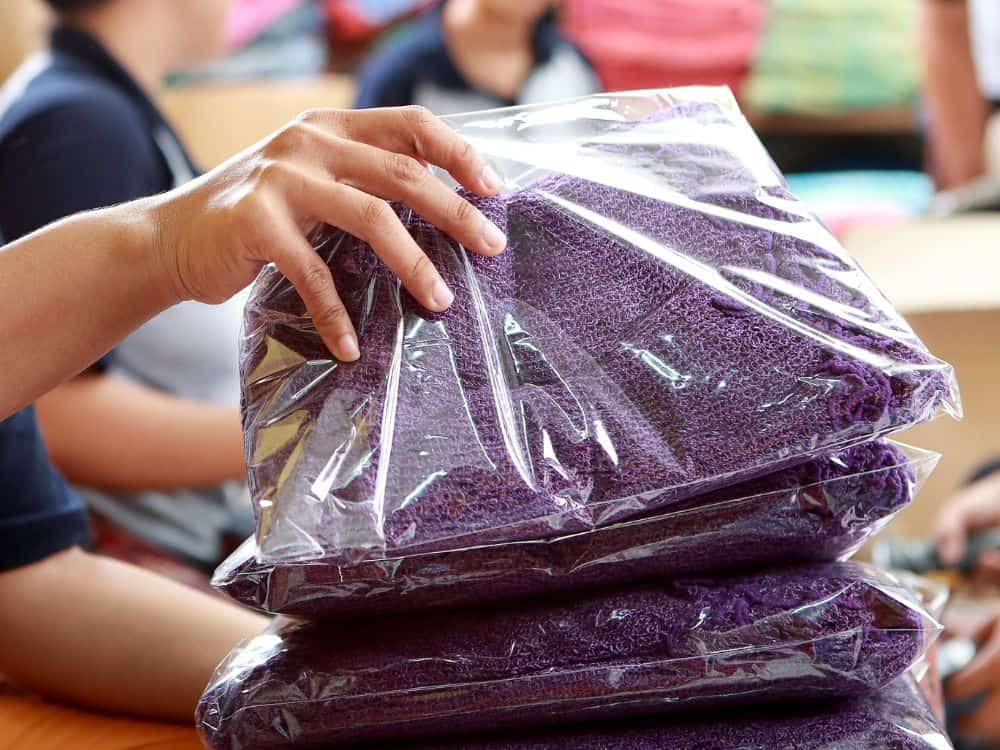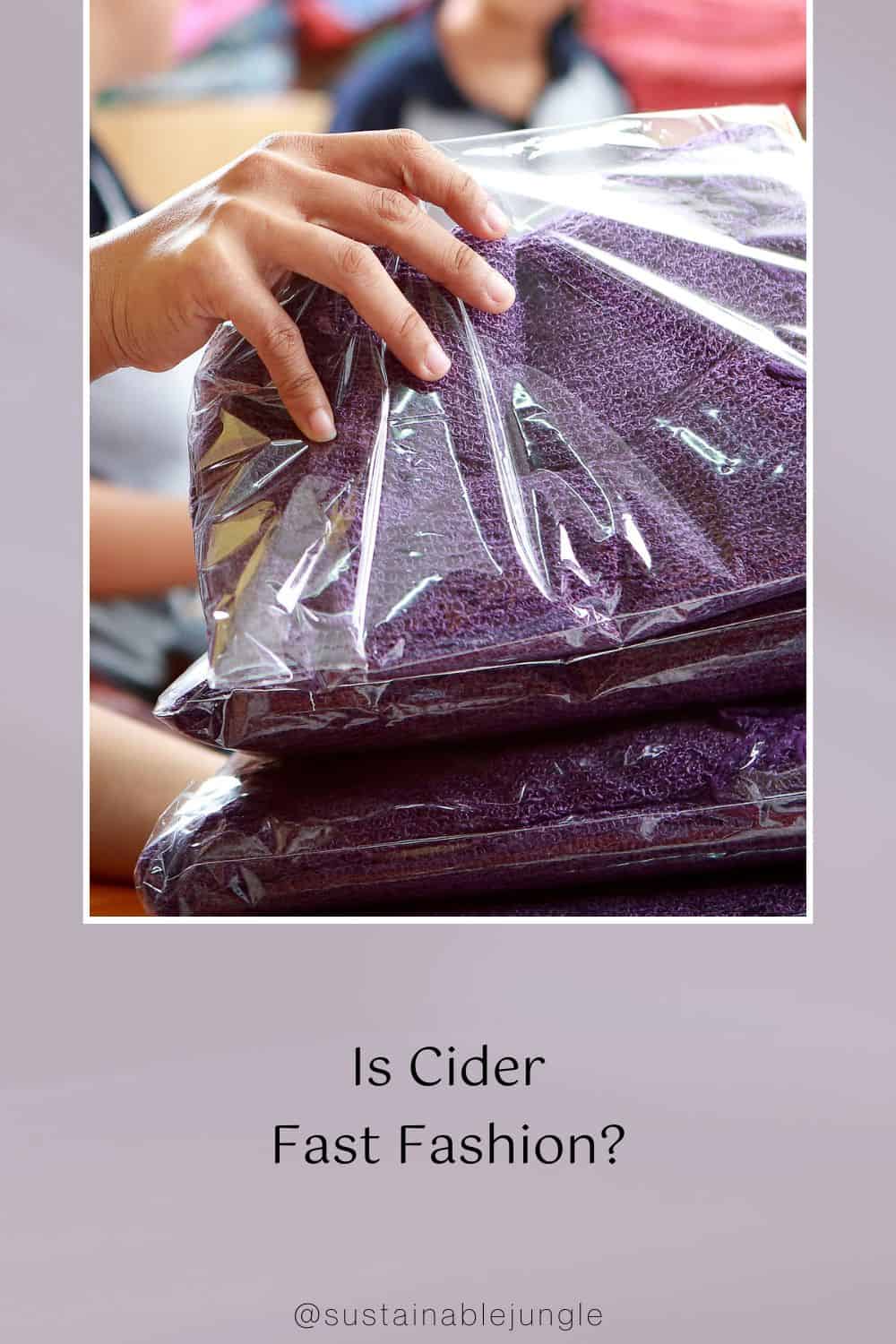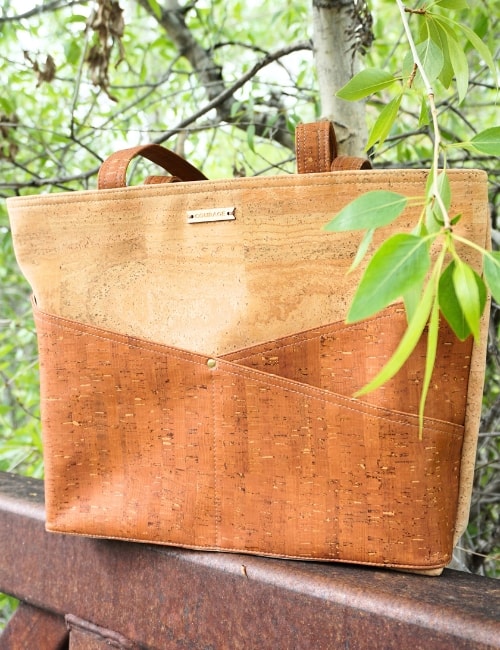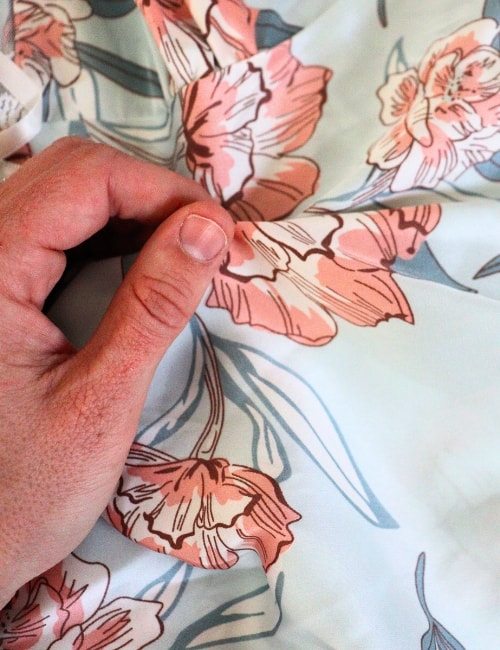
Is Cider Fast Fashion?
Hong Kong-based Cider (a.k.a. Shop Cider) burst into the online fashion industry to disrupt today’s shopping landscape, all thanks to their cute-looking viral clothes and stylish social media ads.
Most commonly compared to ultra fast fashion brand Shein, Cider is like its more bubbly, artsy little sister—but is Cider fast fashion?
Well, any brand being compared to notorious fast fashion industry giant Shein is worth taking a serious second glance at.
Not unlike Shein, Cider has taken Tik-Tok and Instagram by storm since they launched in late 2020, having been founded by a group of friends with Silicon Valley backgrounds from Hong Kong, LA, and Singapore.
A number of Cider’s earlier garments went viral, and within a few short years the brand became a fashion staple for the influencer class of Gen Z and millennials.
Some would argue Cider’s growth has been greater than Shein’s, with Shein racking up 20 million plus followers over twelve years, versus Cider’s 5 million followers in just over three.
But does rapid growth always equate with poor practices?
Usually, yes, but we give every brand a fair shake, which is why we plunged deep into Shop Cider reviews, news, and available information to answer the question: is Cider a good clothing brand?
Let’s see what all the fizz is about when it comes to this uber-trendy clothing brand, who calls itself “your closet’s happy hour.”
1. Uncovering Why Cider Is Problematic

Cider thinks of itself as a cutting-edge “social first” approach to fashion, one that “makes everyday statement pieces for everyone, everywhere,” via a fast fashion business model they call “smart fashion”.
What the heck is social first smart fashion, you ask? And is Cider a good brand because of it?
As “a globally-minded, social-first fashion brand,” Cider works by listing small batches of items for specific moods and occasions every week and operates like a direct-from-factory marketplace.
Based on user data and social media algorithms, Cider is well aware of where demand lies, which is why they say their costs are kept low and textile waste is significantly reduced.
The brand also prominently features a “Sustainability” page on their website, with terms like “recycled fabrics,” “biodegradable packaging,” ”responsible supply chain,” and “tips to contribute to a greener future” featured boldly on their website.
But while Cider appears to nobly pursue sustainability, the brand has also received many questions surrounding their sustainable claims and production practices, with the usual greenwashing red flags being raised.
They know their millennial and Gen Z shoppers have empathy for the planet but lack the wallet to support the cost of sustainability, so environmental benchmarks can remain unmet and hidden behind slick marketing.
So is Cider sustainable? Is Cider ethical? And is Shop Cider fast fashion?
In Cider’s instance, there are a number of red flags we’ll look at.
From design theft and cultural appropriation allegations to a largely unacknowledged packaging scandal, unconfirmed dropshipping accusations, and greenwashing galore, Cider’s brand image may look like an apple orchard of cherubic and stylish women in the Garden of Eden, but the truth behind the brand is far from the case.
After all, what eco-friendly clothing brand would have consumers “shop by mood?”
We’ve never heard of emotional impulse shopping as an approach to finding durable, lifelong staples that are going to provide style, comfort, and utility for decades to come. It’s antithetical to the very philosophy of slow fashion.
Because if you were still wondering, “Is Cider a fast fashion brand?”, the answer is a bubbling, crackling YES. Cider is most definitely fast fashion.
But remember, we aren’t here to shame anyone for their fashion choices. If it’s all your budget allows to shop for, we’re never there to judge a person. We all need clothes.
That said, we hope our Cider fast fashion brand breakdown inspires everyone to take that hard earned cash money to a brand that’s a little more green and perhaps a little less greenwashed.
2. Cider Controversies

Design Theft
Other fast fashion brands do it as well, and it doesn’t make it okay. Design theft is a serious issue that plagues fast fashion.
The ascent of Cider clothing brand was largely thanks to a dress that was allegedly a stolen design from a small Etsy designer, Wanda Cobar, and previously featured in the film 13 Going On 30, and then Vogue, and then… everywhere.
Cobar charges around $400 for her eclectic handmade dress, while cash-strapped Gen Z shoppers can flock to Cider for their $18 ripoff. To this day, Cider still carries their best-selling polyester version of the dress that Jennifer Garner iconically showed off her “Thriller” dance in.
Then there was sustainable fashion brand Lydia Bolton who’s jacket design was also ripped off by Cider with little resolution.
Bolton is a slow fashion brand who makes sustainable alternatives from textile scraps using ethical and sustainable practices, with most designs a unique one-off.
The jacket in question was a print patterned apple pumpkin jacket, created from an old tablecloth.
When Lydia was notified by a follower of Cider mass-producing an identical item, she contacted the brand, who said that while they take allegations of plagiarism seriously, nothing could be done without a trademark.
As an independent designer who created a limited edition single piece, Lydia hadn’t trademarked it. The case went cold.
Lydia explained in one interview the irony of the situation; since the piece was so requested, she considered printing the fabric herself to increase her profits, but chose not to operate against her values:
“I thought to myself ‘maybe I could do a similar print and step aside from my normal ways of practice and print some on organic cotton’ but then I thought actually ‘I’m only going to do that to make money. I’m not doing that for like the core brand value, which is sustainability and reducing waste’.”
Cultural Appropriation
Scrolling through Cider’s social media accounts, it’s almost eerie how few comments they receive of feedback or negativity, which leads one to wonder if “digitally native” Cider actively curates their comments.
The only point of controversy on their Instagram feed is Cider’s own statement on cultural appropriation regarding a traditional Chinese garment they copied and sold.
In fashion, cultural appropriation refers to lifting motifs of a particular culture in a way that doesn’t pay homage to or even acknowledge the original culture of influence, but rather misuses it, often by sexualizing aspects of a culture.
Cider was approached by a number of customers upset by their traditional Chinese Qipao garment. Buyers found it insensitive because a real Qipao involves a level of craftsmanship, quality, and tradition that many hold sacred.
For Cider to sell a cheap, mass-produced polyester version was upsetting. And when they responded by saying their founders are Chinese too and see no problem, it stirred people up even more.
As with the design theft, Cider seemed to avoid the blow-back with minimal accountability or remediation.
Oxo-Biodegradable Packaging
Put simply, Cider is fast fashion that hides behind greenwashing. We’ll get into that further along our breakdown, but the biodegradable packaging issue is worth pointing out now as a scandal.
Because once again, Cider has somehow managed to skirt this controversy off, in spite of it being the opposite of supposed eco-friendly practices.
Every item purchased from Cider comes in a small “biodegradable plastic” pouch, made from d2w® patented technology, which claims to change the molecular structure of plastic so that it biodegrades, sometimes called “oxo-biodegradable.”
Just one quick Google search and it’s apparent how contentious and refuted this technology is. Recently, the EU commission banned it because the claims are so inaccurate, with one EU commission member saying that to market this type of plastic as eco-friendly “is absurd.”
The EU commission also stated “the bags are not a solution for the environment.”
Which leads us to ask, how sustainable is Cider fast fashion, really, if they’re still touting these bags on the Cider website as some magical eco-friendly solution to the world’s glaring plastics crisis.
Even if they did break down in due time, how would that answer the microplastics problem, given all plastic inevitably contributes to the worsening microplastic crisis?
Dropshipping Accusations
Dropshipping is when third party partner factories make and stock an item, with a brand “dropshipping” it from that third-party upon request from the buyer.
It means Cider doesn’t stock the item; a third-party supplier does.
The fashion brand claims that their “smart fashion” model exists to reduce waste and cost associated with traditional inventory; meanwhile, the internet is highly suspicious, given their model actually appears to be dropshipping, which is the opposite.
Many buyers have found exact Cider clothes on a number of other shopping platforms, along with Lazada (Thailand and Philippines’ answer to Amazon) and AliExpress.
Essentially, dropshipping would mean that Cider is the middle-man of a sea of independent factories who produce items and then stitch a Cider tag onto it and ship it to the customer on behalf of Cider when someone purchases the item.
A number of their items have been found by users online at other websites for even cheaper, leading people to believe they markup the price to make a small profit.
Additionally, returns state to send items to their Hong Kong warehouse, which is different from where most of their packages are actually shipped from, since they sometimes come from independent factories.
So while Cider makes it seem like their fashion is “made to order,” it’s more likely the case that it’s all piled up in warehouses waiting to be drop-shipped.
3. Cider Ethical Issues

While Cider wants to appear as light and refreshing as a crisp beverage during a hot summer happy hour, their ethics reveal a whole lot of greenwashing to hide their nasties.
But as many people are wondering, is Cider an ethical brand? Is Cider more ethical than Shein?
While we’re going to say yes, we’re also going to say things aren’t great when it comes to Cider ethics. So how ethical is Cider?
The brand claims to have a responsible value chain, to care about animal welfare, and to responsibly manage things like wastewater, but what’s the truth of how ethical is Cider, really?
To start with, Good On You, the internet’s most respected and reliable sustainability ratings system for fashion, gives Cider a lowest score of “We Avoid”.
Greenwashing
Critics of Cider claim that the fast fashion brand pretends to pursue sustainability as a cover-up instead of out of sincerity.
We’ll give Cider some points for prominently featuring a Sustainability page on their website (unlike fast fashion brands usually do), but we agree, it seems mostly like lip-service.
Let’s start with their stated mission:
“Sustainable fashion should be accessible, not exclusive. That’s why we’re on a mission to create affordable, everyday statement pieces with sustainability in mind. From inventing a smart fashion model that only produces on demand, to adopting recycled materials and a responsible supply chain in our production process, we’re able to reduce our environmental impact in the fashion industry all while working to create a more eco-friendly brand.”
This entire statement—and alas, their whole Sustainability page—is rife with greenwashing and apparent marketing gimmicks.
While sustainable fashion should be accessible, that’s not the reason for Cider’s affordable prices.
Likely, their pocket change prices are because of cheap synthetic fabrics they use and cheap labor from developing countries like China that they exploit. And we’ve already debunked their “smart fashion” model, which likely incorporates a third-party factory and dropshipping model.
We’ll get to their “recycled materials” claims soon.
Labor Issues
We know the answer to the question, “Where is Cider clothing based?”
As noted, they come from Hong Kong, but where are Cider clothes made?
Well, because of their drop–shipping production model that relied on countless independent factories, we don’t really know (much like YesStyle).
While horrid working conditions have yet to surface like their Shein peers, Cider tries to make their garment workers seem like equal players in the game by strategically placing images of toiling workers alongside a statement about “Team and Community.”
But what they leave out is viable and transparent information about their workforce.
While they include a section about having a “responsible supply chain,” they only feature the information about three of their factories, and we’re left without a full picture of their entire fashion production ecosystem.
Are they using just these three factories?
Given the sheer number of Cider clothes designs and how quickly they rotate, doubtful.
How many more? Are they certified? Have they been audited? Who works there? Are they paid fairly? What are their working hours?
We need more transparency to better understand labor issues, workers rights, fair pay, and how they ensure no child labor or forced labor. Because right now, the answer to the question, “Does Cider use child labor?” is a big blank.
From what we DO know, most of their factories are located in the Chinese provinces of Guangdong and Jiangsu, where the monthly minimum wage is approximately USD$275.
Meanwhile, according to the Global Living Wage Coalition, $725 is the actual living wage, which is nearly triple the minimum wage.
So while we lack any direct information from the brand, our research can infer that Cider likely pays next to nothing to its garment workers.
Supply Chain
Cider provides a snapshot of three factories on their sustainability page, which have BSCI certifications and SMETA memberships.
That said, we have no transparent full scope to really understand their value chain and manufacturing.
For example, do they sustainably source raw materials and from where? What is the dyeing process? What protections are in place in manufacturing facilities.
Something we will give Cider a kudos on, though, is this statement:
“The responsible supply chain is at the heart of our business. We require all our suppliers and factories to adhere to Cider’s Zero Tolerance Policy and to ensure these conditions are addressed:
– EQUALITY, RESPECT, AND DIGNITY
– HEALTH & SAFETY
– ENVIRONMENT
– RAW MATERIALS AND PROCESSING
– ANTI – MODERN SLAVERY
– CHILD LABOUR PREVENTION
– FREEDOM OF ASSOCIATION
– WAGES”
For a fast fashion brand, a statement like this is sadly rare.
Now, if only they could become 100% traceable and transparent about their value chain, and provide us with more receipts (like voluntary third party manufacturing certifications across all factories, not just their highlighted three).
As it stands, we’re only provided three postcard-perfect factory snapshots that serve to distract from a likely messier full picture.
Animal Welfare
Cider does not use animal materials, exotic animal skin, or leather, but they do use wool, for which they do not disclose the supplier and sourcing information.
While ethical wool is achievable, the wool industry is often rife with animal welfare violations.
We hope to see a proper animal welfare policy from the brand soon, along with efforts of traceability to ensure they know where and how their wool is being farmed.
4. Cider Sustainability

Cider’s sustainability claims paint a picture of a conscious company, but is Cider clothing legit in terms of sustainability? Is Cider a sustainable brand overall?
Remember: the Cider sustainability rating from Good on You, which we agree with, is a “We Avoid”.
Fabrics / Materials
Is Cider clothing sustainable?
Most of Cider’s materials are harmful fabrics like virgin polyester, nylon, rayon, and viscose, which are all made from fossil fuel-based petroleum.
These synthetic materials are not only environmentally damaging to make but also don’t biodegrade at their end of life. Not to mention microplastics are now found regularly in both fish and humans, which indicates how much of a problem plastic in fashion is.
Cider makes no mention of using a Guppy Friend bag to protect from microplastics entering the waterway, nor does it properly acknowledge the end of life issue around their plastic clothing.
However, when we ask, “How sustainable is Cider?”, it’s important to highlight the positive strides the brand has made.
While their sustainable materials are lacking overall, they do have a Recycled Cider Collection made with recycled materials certified by the Global Recycled Standard (GRS).
The catch?
At the time of writing this, there were just 40 pieces out of thousands upon thousands ofpolyester items being sold that actually featured recycled materials.
What’s more, is that of these 40 or so “recycled” items, some had only 30% recycled polyester, with the rest being made of virgin polyester or plastic. (Hello greenwashing!)
On top of that, the brand alludes to organic cotton and recycled cotton, but at the time of writing this, their garments featured neither.
If they really want to be an ethical and sustainable brand, they’d need some truly eco-friendly materials, better product circularity worked into their business practices, less (no) virgin plastic, and some guarentee to consumers that they clothing isn’t processed with toxic chemicals.
Carbon Footprint & Manufacturing Impact
Since Cider doesn’t release an annual sustainability report, we have no way to really know the brand’s carbon footprint or manufacturing impact.
For example, they call their manufacturing “smart fashion,” and state,
“We are able to adjust production in real time by looking at direct feedback and data from our customers (pretty cool, right?!). This means we produce less waste than traditional retail fashion companies, allowing us to deliver fashion more quickly and with less waste.”
But the rationale here is both misleading and vague.
How much less waste does Cider produce versus traditional fast fashion companies? Isn’t production for all fast fashion outlets informed by customer data? How does this deliver fashion faster?
And wouldn’t it technically mean slower delivery times, like slow fashion, if production is being adjusted based on demand?
Made-to-order, for example, is a widely respected sustainable fashion practice of pieces only being made after they’re purchased. This prevents clothing waste and also saves brands money.
It seems like Cider is latching onto ethical and sustainable concepts and spinning them, to greenwash their destructive approach to making clothes.
Another example of murkiness is regarding water claims.
While their website talks about “Our Clean Water Process,” without any third party sustainability certifications or published audits, we’re left to believe the brand without any actual evidence.
Likewise, the brand chooses not to opt for certifications it could certainly afford like GOTS, OEXO-TEX, or B Corp, which would help add validity to claims of an eco-friendly and ethical manufacturing process.
When a huge corporation makes claims without proof like “we are tirelessly implementing strategies aimed at reducing our water usage in all of our factories, warehouses, and office locations,” we simply have no way to substantiate brand claims.
Given their bio-packaging greenwashing controversy, and their choice to keep marketing these non-biodegradable bags as biodegradable despite shoddy science already dismissed by the EU commission, we can’t help but not trust them.
Shipping
In terms of shipping, Cider makes no claims or efforts to reduce the environmental impact of delivering their goods to anywhere worldwide.
Most shoppers confirm their packages come from third-party sellers and not Cider, so it’s hard to even keep track of shipping methods or footprints if it’s really being drop shipped.
Did you know we Have a Newsletter?
We cover the latest in sustainable living, fashion, zero waste, beauty, travel, finance and more…
Final Thoughts On Is Shop Cider Legit & Sustainable?
Caring about people and the planet cannot serve as an afterthought to a business’ primary concern of profit, to be a truly sustainable and ethical clothing brand.
So, is Cider a sustainable brand?
In their case, nothing we’ve seen indicates sustainability as a core pillar, it’s more like an afterthought.
“Is Cider like Shein?” is a better question to ask, because their model is remarkably similar to Shein’s, minus the level of controversy and revenue that Shein has accrued. (Cider rakes in about USD $2 million per year, versus Shein’s USD $22 billion.)
But Cider manages to get away with the same fast fashion tactics—just with a nice coat of whimsical greenwashing to conceal them.
If this fashion brand truly wants to embrace sustainable and ethical practices to show their commitment to regenerating our Earth and society through better business, then this wannabe-eco brand has a ways to go.
Shopping by mood for virgin plastic pants may sound fun on a rainy Sunday, but our money is surely better spent on products that actually care about the planet and people over profit.
So the next time your heavily “influenced” and infinitely-scrolling fashionista friend asks, “Is Cider legit?” shoot this article their way, along with sustainable alternatives.
Together, we can help each other to suss out the truly green from the epically greenwashed.
Pin these:





